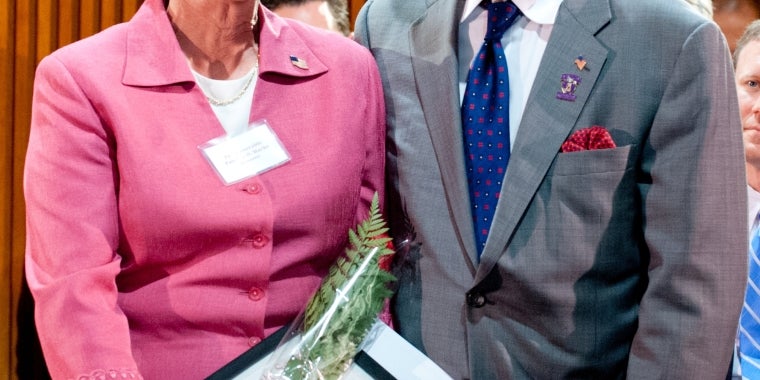
Senate Passes Alesi Bill Establishing Mandatory Reporting Of Elder Abuse
Senator Jim Alesi (R,C - Perinton) today announced that the Senate passed legislation he sponsored which would require the mandatory reporting of elder abuse.
The passage of Senator Alesi’s legislation follows events in the Monroe County area which have highlighted the horrors of elder abuse. The bill is not a reaction to these events, however, as it has now passed the Senate six years in a row. Although the Assembly Democrats continue to ignore the elder abuse problem, Senator Alesi has vowed to continue the fight to see mandatory reporting of elder abuse passed into law.
"Elder abuse is an escalating problem, and it is extremely alarming how often such cases go unreported," said Senator Alesi. "Victims are either unable or too afraid to report the abuse themselves. By instituting a system that holds nursing homes and caretakers responsible for reporting symptoms of abuse, we help protect these vulnerable citizens."
Senator Alesi’s bill, Senate Bill S.5000, is patterned after New York State child abuse laws. The bill outlines how to report a case of maltreatment should someone have reasonable cause to suspect abuse, with abuse being defined in the bill as meaning the willful infliction of injury, unreasonable confinement, verbal or mental anguish or financial exploitation. Those who knowingly or willingly fail to report abuse shall be civilly liable for the damages caused by such failure and will be guilty of a class "A" misdemeanor.
"Many people rely on institutions or specialized care to aid family members who need assistance in their everyday lives," said Senator Alesi. "Individuals who are unable to care for themselves are entitled to have safe, professional care at all times. There can be no exception to this rule, and those who contribute to providing quality care need to be aware of potential abusive situations and report them immediately. By reducing the growth of unreported abuse, families will be able to feel secure in making the important decision to release their loved ones into the care of others. More importantly, those people who are most vulnerable will have the security that they deserve."

